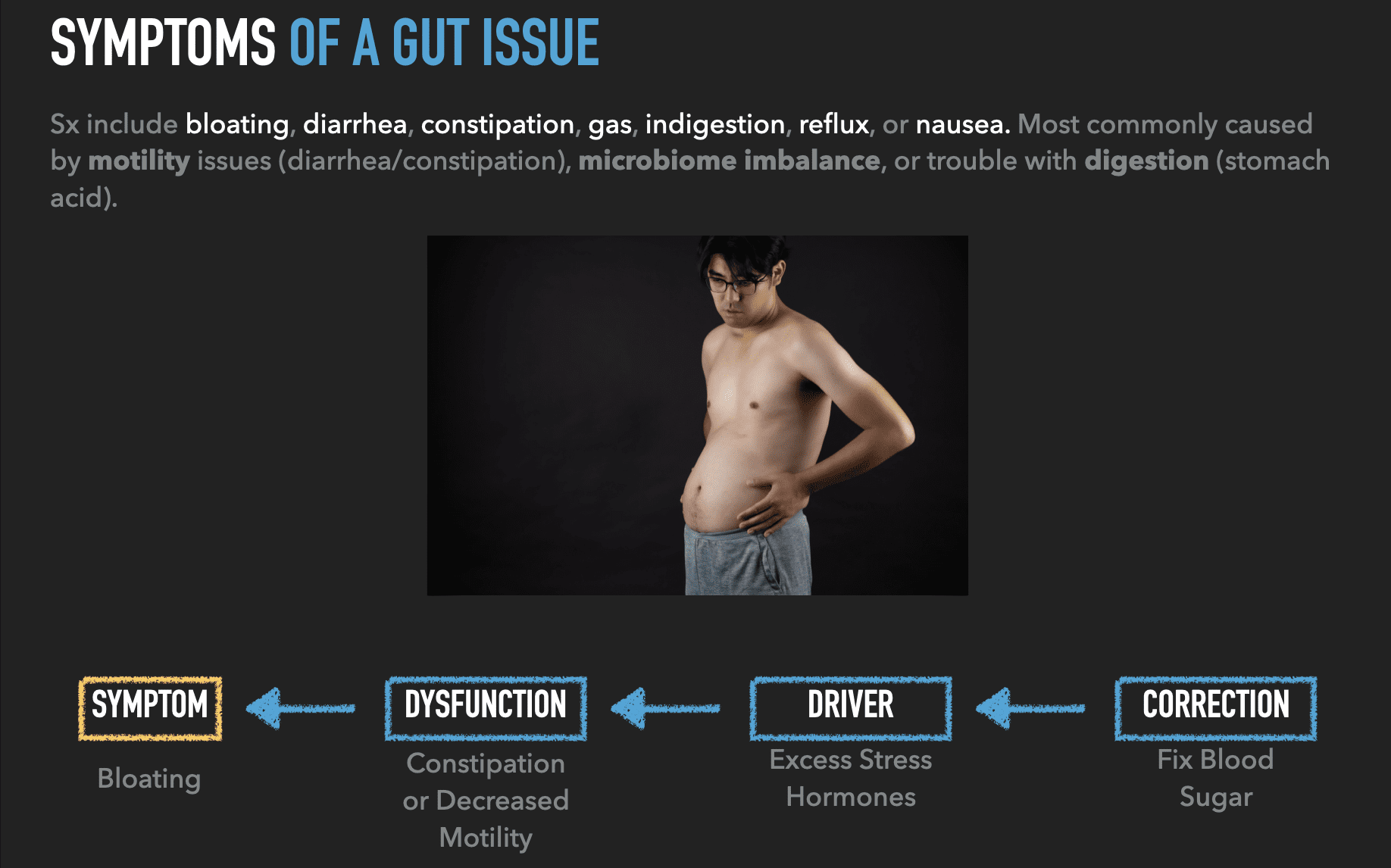What is Leaky Gut?
Leaky gut is the result of an inflammation in the digestive tract leading to increased permeability, which allows for proteins that should remain in the gut ending up in the blood stream. The immune system recognizes these proteins as intruders. This not only stimulates an inflammatory response, but B cells begin to memorize what that protein looks like and create antibodies against this protein. This will amplify the response of the immune system with each interaction over time and results in a “food sensitivity.”
Inflammation in the Gut -> Breakdown in Gut -> Proteins like Gluten Escape into the blood stream -> Immune system reacts
Signs and Symptoms
- Bloating / Constipation or Diarrhea
- Indigestion / Heartburn
- IBS or IBD
- Foot Intolerances
- Chronic Fatigue
- Autoimmunity
- Mood issues – anxiety / depression
Leaky Gut and the Autoimmune Connection
After the immune system begins to create antibodies against a particular protein (like gluten), it has a chance to start attacking other proteins in the body that look similar to it. This concept is called molecular mimicry. For example, gluten looks a lot like your thyroid and consumption of gluten can accelerate antibodies against the thyroid. Continued exposure to sensitive foods will not only destroy the thyroid tissue, but continually break down the gut. Removing food sensitivities and healing the gut is a priority for patients with autoimmune issues.
Addressing Leaky Gut
If the destruction of the gut is triggered by inflammation, then that is where you have to start. Reducing gut inflammation begins with removing those food sensitivities and correcting any dysbiosis. Dysbiosis is an imbalance between bacteria, fungus, virus, or even parasitic overgrowth. Most commonly, you will find a patient will need to reduce an overgrowth before supplementing with a probiotic.
Reduce the overgrowth BEFORE supplementing with a probiotic
If you had mold all over the walls, then you’d focus on removing the overgrowth before painting the walls – right?
Reducing the overgrowth
- Take an antimicrobial herb like golden thread, melia, or morinda. Whether bacterial or fungal – these herbs will work to reduce both.
- Remove foods that contribute to an overgrowth. No sugar, yeast, cheese, fermented products, alcohol, and consider looking at a low FODMAP diet if you’re struggling with certain carbohydrates.
Aid in Digestive Weak links
If you get indigestion or heartburn look at correcting this issue. Ensuring digestion is working properly above the small intestine is vital.
- Consider using Betaine HCL between meals. We use standard processes. Start small and work your way up.
Reduce other offenders that break down the gut like excessive stress
Stress hormones are called such because they increase due to some stress response. That can be from emotional (family, job), chemical (low blood sugar, inflammation), or physical (pain).
Avoid rapid fluctuations in blood sugar. People in this category should focus on eating 3 meals spaced 5 hours apart with no snacking in between.
Get your emotional baggage under control with meditation, therapy, or some low intensity exercise like yoga. Excessive exercise can drive excessive stress hormone production.
Work on resolving chronic pain issues with a good manual therapist like a chiropractor, physical therapist, or qualified professional.
Consider adding an adaptogenic herb like Ashwaganda, Tulsi, or Rhodiola. Other supplements to consider would include Magnesium, Vitamin B6 (P5P), and Zinc.
Reducing Stress Hormone Supplement Stack Here
Other Helpful Supplements
- Turmeric and Resveratrol to aid in reducing gut inflammatory markers like NFKB. They also help calm down an over active immune system.
- Glutamine (Protein that makes up the gut lining), 5-MTHF to protect and support the rebuilding process.
- Piecing Together Painful Psoriasis - January 20, 2022
- HOW TO: Actually Address LOW Testosterone - December 28, 2021
- How to Fix a Slow Metabolism - September 23, 2021
